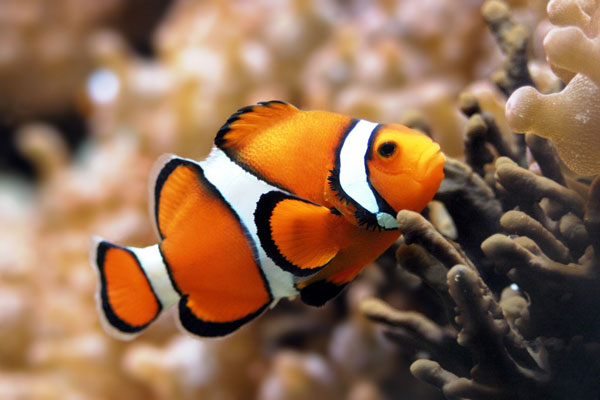Smaller fish because of climate change
The average weight of fish species can be reduced by up to 24% due to global warming.
Dr. William Cheung, an expert at the University of British Columbia in Canada, and his colleagues modeled the impact of global temperature rise on more than 600 species of fish between 2001 and 2050 They used data from the Intergovernmental Panel on Climate Change to build the model, the BBC reported.

The greater the average temperature of the water, the lower the concentration of oxygen in the water. Since the oxygen concentration is directly proportional to the weight of the animal, the lower the oxygen concentration, the lower the weight of the fish species.
The team found that a slight change in ocean floor temperature could have a significant impact on the size of the fish. The weight of fish ranges from 14% to 24%. The change is strongest in the Indian Ocean and the Atlantic Ocean.
Experts explain that the greater the average temperature of water, the lower the oxygen concentration in the water. Since the oxygen concentration is directly proportional to the weight of the animal, the lower the oxygen concentration, the lower the weight of the fish species.
'Temperature influences metabolism in fish body. If the temperature rises, the fish needs more oxygen for the body's activities, while the oxygen concentration in the water remains unchanged. So the amount of oxygen in the water will not be able to meet the needs of fish. As a result, the weight of the fish must be reduced to accommodate the new condition , 'Cheung said.
A previous study showed that changes in ocean temperatures could affect the distribution and fertility of many fish species.
The models also show that, due to rising sea temperatures, fish species will move towards the poles at an average speed of 36km per decade.
"So people will see small fish from warm waters to the North Sea (the North Atlantic Ocean) in the future ," Cheung said.
- Climate change makes sharks smaller and more gentle
- Climate change changes the world fishing map
- Climate change will cause marine fish to die massively
- This is how Dubai copes with climate change
- What is Climate Change?
- Marching for climate change around the world
- Tropical fish migrate to the extreme because of climate change
- The terrifying change of the Earth due to climate change
- SimCLIM helps build climate change scenarios
- Climate change is happening faster than expected
- 4 shocking findings on climate change
- Too many animals and plants disappear due to climate change
 Surprised: Fish that live in the dark ocean still see colors
Surprised: Fish that live in the dark ocean still see colors Japan suddenly caught the creature that caused the earthquake in the legend
Japan suddenly caught the creature that caused the earthquake in the legend A series of gray whale carcasses washed ashore on California's coast
A series of gray whale carcasses washed ashore on California's coast Compare the size of shark species in the world
Compare the size of shark species in the world